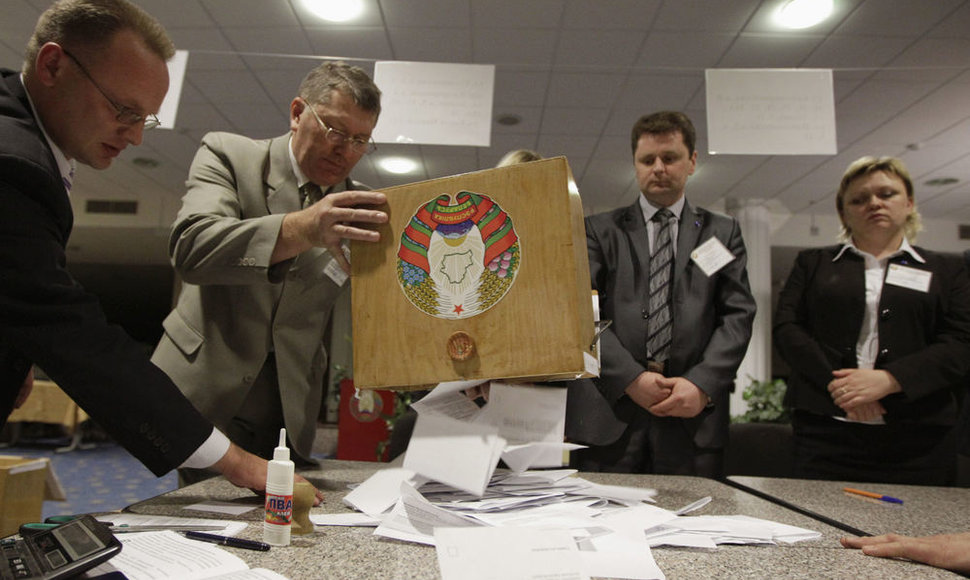"Comparing with the earlier presidential election campaign when the administration at least tried to conceal details of discarding and forging ballot papers, now they didn't even try to hide what they were doing," Stanevski told a news conference at the Lithuanian parliament's European Information Bureau on Thursday.
In his words, democratic forces of Belarus understand that the country simply cannot have free and fair elections.
"We participated in elections, we wanted to make us and our organization known and say that Belarus did not have elections that would be fair," Stanevski said in comment of his decision to run in elections instead of boycotting them.
Igor Maslovski of Belarus' Social Democrats said the 23 September elections could not even be defined as elections but a political campaign, adding that the opposition party's aim was to get as many political dividends as possible.
"We received (reports about) hundreds of violations of election procedures, acts, pleas and statements were filled out and submitted to various commissions; however, merely a few were examined and responded to. In other cases, the response was: inspection was carried out, the facts didn't prove correct," Maslovski told the news conference.
A member of the Belarusian Christian Democratic Party, Alexander Shemiakin, said the actual voter turnout at the general elections was under 50,000 voters, i.e., below the turnout threshold.
In his words, the wrong choice of strategy has been the main problem throughout the history of the Belarusian opposition.
"Since 2000, no general elections were held in a politically correct manner, we have always gone for the wrong strategy. The opposition boycotted the 2000 elections; in 2004, the opposition was naive to think that opposition candidates would win parliamentary mandates," Shemiakin said.
In his words, the opposition should work out a common strategy to avoid defeat in the 2015 presidential elections.
Maslovski emphasized the need to unite small opposition parties and democratic movements by then in order to resort to all means of spreading information.
"There are people in Belarus who no longer trust the administration but haven't yet come to us," he said.
Yuri Gonchar of the Belarusian public movement Tell the Truth told the Vilnius news conference that democratic forces had to continue their day-to-day work with the nation to persuade it into believing in an alternative to the current authoritarian regime.
According to official data published by Belarus, the 23 September parliamentary elections were attended by 74.2 percent of eligible voters. Merely four people outside the main pro-governmental faction won mandates in the 110-seat parliament.
An international observer mission of the Organization for Security and Cooperation in Europe (OSCE) announced that the elections were neither free nor fair.












